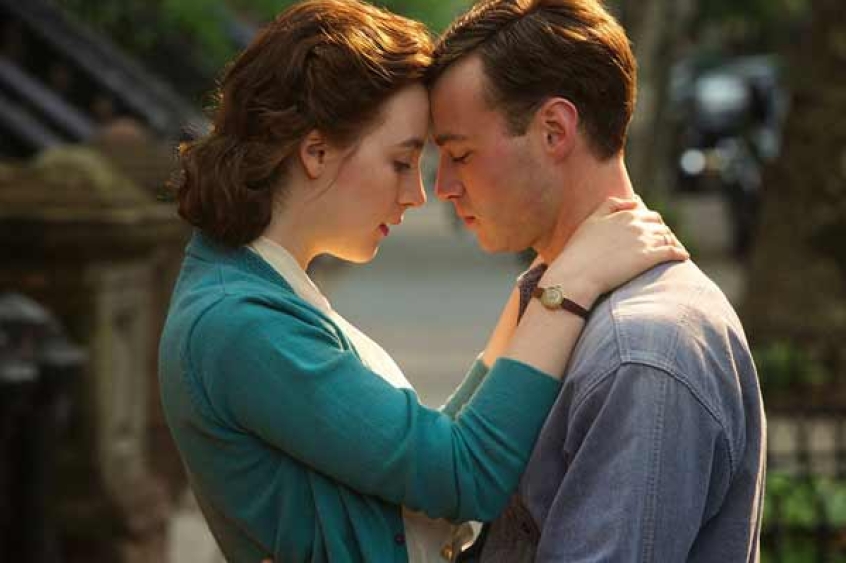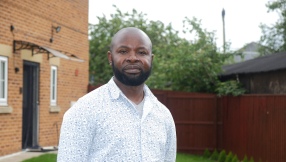
Where is home for you? Is it a physical place, or like Billy Joel sang, is it really a person? That's the central theme of Brooklyn, John Crowley's profoundly moving drama, which casts Saoirse Ronan as a young Irish girl navigating her way through 1950s New York.
The film follows Ronan's character Eilis Lacey as she departs her home community for the uncertainty of Brooklyn under the sponsorship of Jim Broadbent's Irish priest. Eilis' home town is beautiful – with a nod no doubt to the Irish tourist board – but there's a poverty of opportunity there; she has no job and no boyfriend, and consequently little confidence. Her voyage across the Atlantic feels enforced; the only option open to her.
When she arrives there is little to fan her enthusiasm. She has a job, but her loneliness and sense of displacement are agonising; her life has moved to America, but her heart is still in Ireland. Until that is, she meets Italian-American Tony Fiorello (Emory Cohen), and her perspective begins to shift.
This first section of the film gives a perhaps unusual insight into what it is to be a migrant; a topical subject for entirely different reasons. Eilis' arrival in the United States may be her only option, but it is marked with intense homesickness. She may have a job, but every day is laced with the pain of separation from her family, and a home community that she begins to view with roses-tinted spectacles.
Her relationship with Broadbent's priest is key as she begins to overcome this. He is a kind man, but he's also a practical one; unlike many benevolent portrayals of on-screen clergy, his faith drives him to activism, working for the good of the poor. In fact, Brooklyn as a whole offers one of the most overwhelmingly positive views of the church on screen for many years. Of course High Catholicism is the butt of a few gentle jokes, but in a city full of both poverty and migrants trying to make sense of their new surroundings, the church is shown taking a positive lead.

Broadbent is excellent in an understated role, as is Julie Waters as the brilliantly strict mistress of Eilis' boarding-house. But as the mooted award nominations should recognise, the film belongs to Ronan. She is utterly spell-binding in the lead, at various moments the story is simply told as the camera lingers on her silent expression or subtle gesture.
Brilliantly written (by British author and screenwriter Nick Hornby) and impressively subtle, Brooklyn has the confidence to resist huge moments of melodrama to instead draw deep meaning from the things we can all relate to; love, family, home. The search for the last of those seems to me to be a very primal thing, inextricably linked to the other two. Brooklyn tenderly explores this idea through a story of risk, courage and personal adventure (which, by the way, knocks the Bechdel test for six). Go and see it, and be richly rewarded.
Martin Saunders is a Contributing Editor for Christian Today and the Deputy CEO of Youthscape. You can follow him on Twitter: @martinsaunders


















